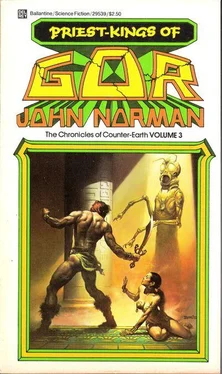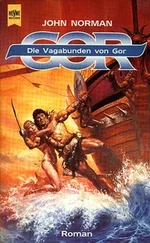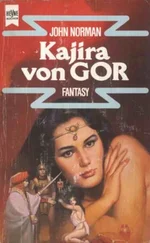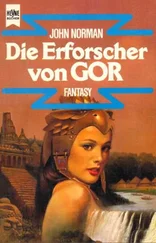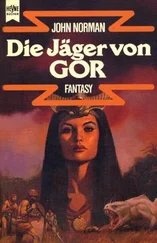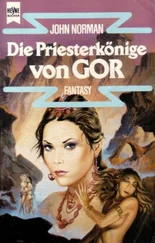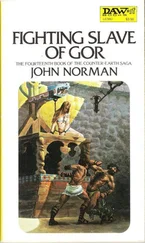“Your world is dying,” I said to Misk.
“The universe itself will die,” said Misk.
He had his antennae lifted to the white fires that burned in the black night over Gor.
I surmised he was speaking of those entopic regularities that apparently prevailed in reality, as we know it, the loss of energy, its transformation into the ashes of the stellar night.
“It will grow cold and dark,” said Misk.
I looked up at him.
“But in the end,” said he, “life is as real as death and there will be a return of the ultimate rhythms, and a new explosion will cast forth the primitive particles and we shall have another turn of the wheel, and some day, sometime, in eons which defy the calculations even of Priest-Kings, there may be another nest, and another Earth, and Gor, and another Misk and another Tarl Cabot to stand upon a windy hill in the moonlight and speak of strange things.”
Misk’s antennae looked down at me.
“Perhaps,” he said, “we have stood here, on this hill, thusly together, unknown to either of us, already an infinite number of times.”
The wind seemed now very cold and very swift.
“And what did we do?” I asked.
“I do not know what we did,” said Misk. “But I think I would now choose to do that action which I would be willing that I should do again and again with each turning of the wheel. I would choose so to live that I might be willing that I should live that life a thousand times, even forever. I would choose to live that I might stand boldly with my deed without regret throughout eternity.”
The thoughts that he had spoken horrified me.
But Misk stood, the wind whipping his antennae, as though he were exalted.
Then he looked down at me. His antennae curled. “But I speak very foolishly,” he said. “Forgive me, Tarl Cabot.”
“It is hard to understand you,” I said.
I could see climbing the hill towards us, a warrior. He grasped a spear.
“Are you all right?” He called.
“Yes,” I called back to him.
“Stand back,” he cried, “so I can have a clean cast.”
“Do not injure it!” I called to him. “It is harmless.”
Misk’s antennae curled.
“I wish you well, Tarl Cabot,” he said.
“The affairs of Priest-Kings,” I said to him, more insistently than ever, “are not my affairs.” I looked up at him. “Not mine!” I cried.
“I know,” said Misk, and he gently extended his antennae towards me.
I touched them.
“I wish you well, Priest-Kings,” I said.
Abruptly I turned from Misk and rushed down the hill, almost blindly. I stopped only when I reached the side of the warrior. He was joined by two or three more of the men from the camp below, who were also armed. We were also joined by an Initiate, of unimportant ranking.
Together we watched the tall figure on the hill, outlined against the moon, not moving, standing in the uncanny, marvellous immobility of the Priest-Kings, only its antennae blowing back down over its head in the wind.
“What is it?” asked one of the men.
“It looks,” said the Initiate, “like a giant insect.”
I smiled to myself. “Yes,” I said, “it does look like a giant insect.”
“May the Priest-Kings protect us,” breathed the Initiate.
One of the men drew back his spear arm but I stayed his arm. “No,” I said, “Do not injure it.”
“What is it?” asked another of the men.
How could I tell him that he looked with incredulity and horror, on one of the awesome denizens of the grim Sardar, on one of the fabulous and mysterious monarchs of his very world, on one of the gods of Gor — On a Priest-Kings?
“I can hurl my spear through it,” said the man with the spear.
“It is harmless,” I said.
“Let’s kill it anyway,” said the Initiate nervously.
“No,” I said.
I lifted my arm in farewell to Misk, and, to the surprise of the men with me, Misk lifted on foreleg, and then turned and was gone.
For a long time I, and the others, stood there in the windy night, almost knee-deep in the flowing, bending grass, and watched the knoll, and the stars behind it, and the white moons above.
“It’s gone,” said one of the men at last.
“Yes,” I said.
“Thank the Priest-Kings,” breathed the Initiate.
I laughed and the men looked at me as though I might be mad.
I spoke to the man with the spear. He was also the leader of the small group.
“Where,” I asked him, “is the land of the Wagon People?”
